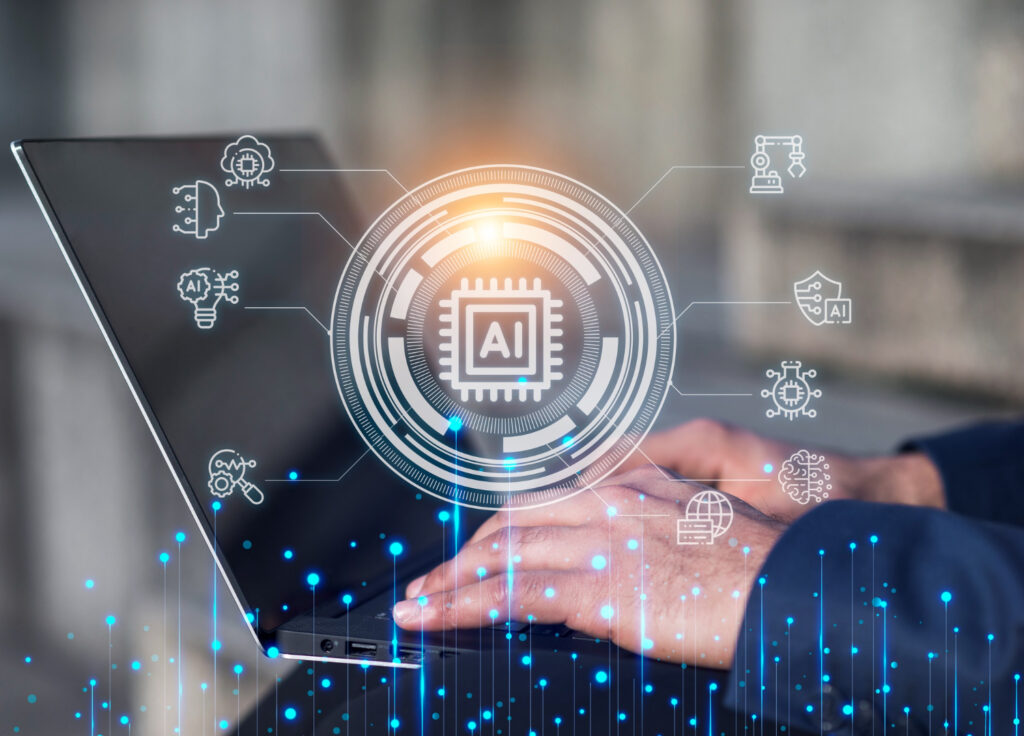No longer relegated to sci-fi films, intelligent cleaning machines and systems are reshaping the industry, bringing with them a wave of efficiency, personalization, and even sustainability.
Forget the days of battling dust bunnies and wrestling with tangled mops. Artificial intelligence (AI) is sweeping through the cleaning world, transforming our relationship with grime and grime. No longer relegated to sci-fi films, intelligent cleaning machines and systems are reshaping the industry, bringing with them a wave of efficiency, personalization, and even sustainability.
Smart Machines
The most visible face of AI-powered cleaning is undoubtedly the rise of autonomous robots. Roomba may have paved the way, but today’s cleaning machines are far more sophisticated. Equipped with lidar sensors, advanced mapping algorithms, and obstacle avoidance technology, these robotic wonders navigate rooms meticulously, vacuuming every nook and cranny with precision. Some even mop, scrub windows, and empty themselves, rendering humans’ mere spectators in the chore revolution.
Beyond Bottoms
AI’s Deeper Reach: But AI’s impact extends far beyond the humble robo-vac. Smart laundry systems adjust washing cycles based on fabric type and soil level, optimizing water and energy usage. Dishwashers analyse grime and customize cleaning programs, ensuring sparkling plates without wasting a drop. Even toilets are getting smarter, with sensors detecting occupancy and triggering automatic flushes, reducing water consumption, and promoting hygiene.
Smarter Cleaning – Personalised Results
AI isn’t just about automation; it’s about personalization. Connected cleaning machines learn your habits, preferences, and even the unique dirt distribution in your home. They adapt cleaning routines to your schedule, ensuring sparkling floors upon your arrival from work or a spotless kitchen before your first morning coffee. Imagine a future where your robot butler anticipates your cleaning needs, tailoring its efforts to your preferences and even anticipating spills or pet accidents.
Data-Driven Sanitation for All
AI’s potential goes beyond individual homes. In public spaces, intelligent cleaning systems optimize schedules and resource allocation, ensuring high-traffic areas are tackled more frequently while avoiding unnecessary cleaning in deserted zones. Sensors can detect spills and biohazards, prompting targeted responses, improving hygiene, and reducing the risk of accidents. Moreover, data analysis from these systems can inform city planning and public health initiatives, leading to cleaner, healthier communities.
The Rise of Eco-Friendly Cleaning
Sustainability is another area where AI shines. By optimizing cleaning routines and minimizing chemical use, intelligent systems can significantly reduce the environmental impact of cleaning. Smart dishwashers and laundry machines use AI to determine the minimum water and energy needed for a thorough clean, saving precious resources. Automated floor cleaners avoid unnecessary detergent application, protecting both surfaces and the environment.
Beyond the Buzzwords – Challenges and Concerns
Despite its promises, AI-powered cleaning is not without its challenges. Concerns regarding data privacy, reliance on technology, and job displacement loom large. However, addressing these concerns head-on is crucial. Robust data security measures, fostering human-machine collaboration instead of replacement, and upskilling cleaning personnel for new roles are essential steps towards responsible and inclusive AI development in the cleaning sector.
The Future of Clean – A Human-AI Partnership
Ultimately, the future of clean lies not in complete automation but in a harmonious partnership between humans and AI. While machines tackle repetitive tasks with unparalleled efficiency, human oversight and intervention remain crucial for complex cleaning challenges, ethical considerations, and personalized touch. Imagine a world where AI handles the drudgery, freeing us to focus on deeper cleaning, innovative solutions, and creative approaches to maintaining a clean and healthy environment.
As AI continues to evolve, its impact on the way we clean will only deepen. From intelligent machines customizing our cleaning routines to data-driven insights shaping public health policies, the future of clean is a fascinating and rapidly evolving landscape. So, step aside, mop and bucket, the future of clean is here, and it’s powered by artificial intelligence.

